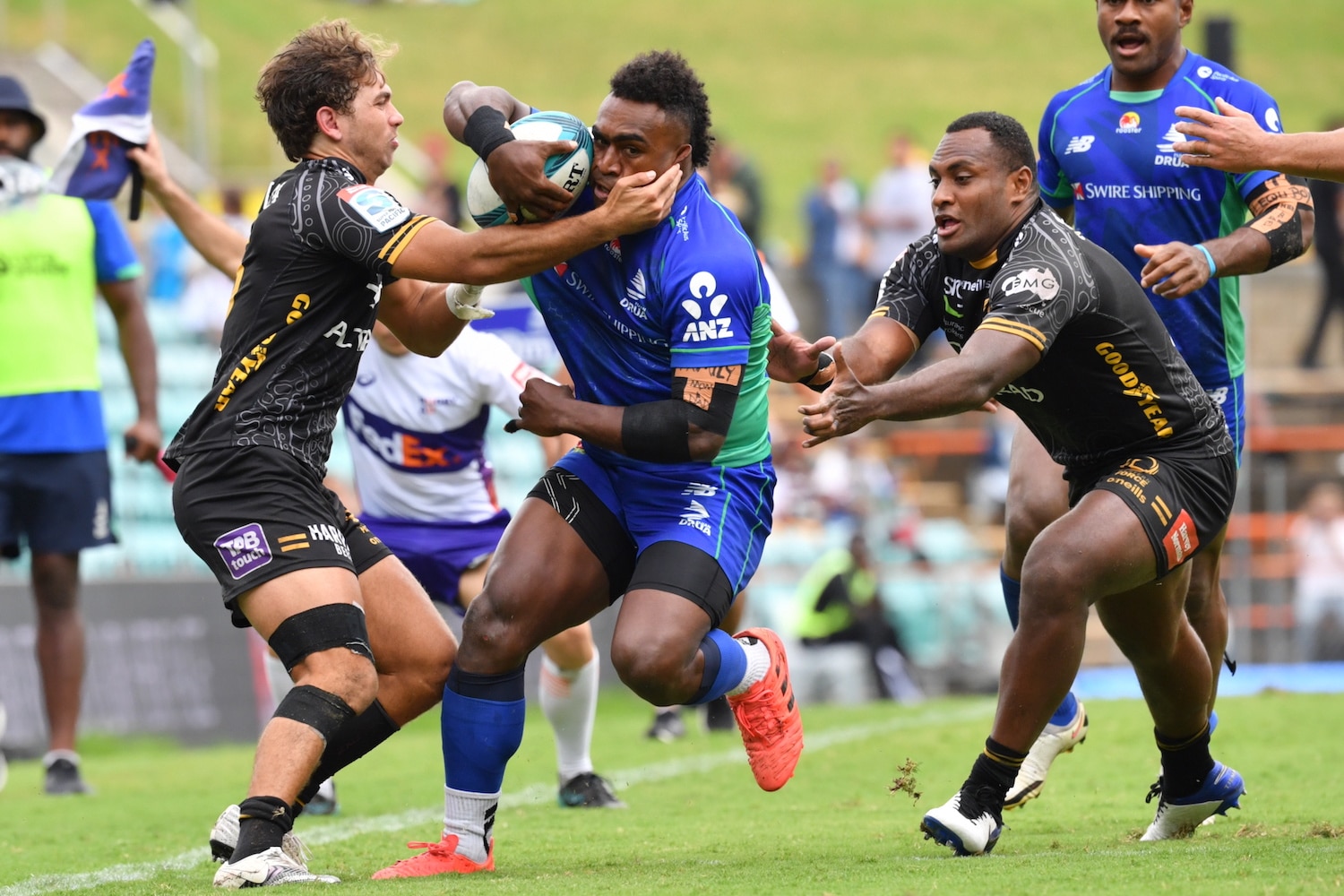World Rugby’s new laws to try and speed up the game will be introduced in Super Rugby for the 2023 season and if successful could be implemented in the Rugby World Cup in France later this year.
Time restrictions on goal kicks, set pieces and, rucks and a streamlined TMO process are among a raft of fan-centric law innovations.
Referees will enforce 90 seconds time limits on conversions, 60 seconds for penalty kicks, 30 seconds for scrums and lineouts to be set, and 5 seconds for the ball to be used at rucks, while TMOs will only interrupt play for serious, clear and obvious incidents of foul play when the Super Rugby Pacific 2023 season kicks off on Friday, 24 February.
The key changes are summarised in bullet points below:
The referee will put a stopwatch shot clock on kickers who will have 90 seconds to kick a conversion from the time a try is awarded, and 60 seconds for penalties, from the time the referee signals a shot at goal.
Match officials will expect lineouts and scrums to be formed within 30 seconds of the respective marks being set, and the ball to be used within 5 seconds of a ruck being formed.
TMOs only ‘interrupt’ play to investigate serious, clear and obvious incidents of dangerous play missed by the Match Official team.
Referees can utilise the TMO to make a Yellow Card decision, but any extended TMO video reviews will take place once the player has left the field, not before the Yellow Card is issued.
The TMO will have 8 minutes to either uphold a 10-minute Yellow Card decision or upgrade it to a 20-minute Red Card, in which case the player will not return to the field, but can still be replaced.
Referees will now also have the power to issue a full Red Card for deliberate foul play, in which case the player will not return to the field and cannot be replaced.
Super Rugby Pacific Tournament Director Matt Barlow said the law innovations agreed by teams and with the support of World Rugby were designed to make the game more entertaining for fans and safer and more enjoyable for players.
“We want Super Rugby Pacific to be the most entertaining, innovative and fastest professional rugby competition in the world. We’ve listened to our fans and taken steps to reduce stoppages and video replays, increase flow and maintain the integrity of the competition and the safety of players in regard to yellow and red cards.
“Players, coaches and referees are excited about these innovations, and we believe they will create a better fan experience both at the game and for those watching on television.”
Barlow stressed player welfare would not be jeopardised by the law innovations, which would put more spotlight on dangerous and foul play but do it in a way that did not have such a big impact on the viewing experience for spectators.
“The review process for dangerous play will be as vigorous as ever and we believe TMOs will be able to make better judgements about the seriousness of foul play offences without the pressure of having to watch replays under stressful time constraints. There is also the addition of a stronger deterrent for deliberate foul play with the referee having the option of issuing a full Red Card.”
“We know players and fans don’t want to watch multiple frame-by-frame replays while they wait for the match to resume, so we believe we’ve struck the right balance.”
Barlow said it was also important to maintain the integrity of the game by making sure crucial decisions were not rushed.
“TMOs will still be reviewing the two phases before a try is scored and can still be called upon by the referee to check things like the ball being grounded when a try has been scored. The difference will be the Match Official Team will lead the process and viewers will not see as many replays.”





